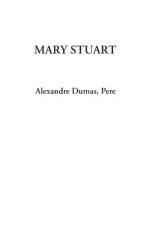Directly she was delivered, Mary sent for James Melville, her usual envoy to Elizabeth, and charged him to convey this news to the Queen of England, and to beg her to be godmother to the royal child at the same time. On arriving in London, Melville immediately presented himself at the palace; but as there was a court ball, he could not see the queen, and contented himself with making known the reason for his journey to the minister Cecil, and with begging him to ask his mistress for an audience next day. Elizabeth was dancing in a quadrille at the moment when Cecil, approaching her, said in a low voice, “Queen Mary of Scotland has just given birth to a son”. At these words she grew frightfully pale, and, looking about her with a bewildered air, and as if she were about to faint, she leaned against an arm-chair; then, soon, not being able to stand upright, she sat down, threw back her head, and plunged into a mournful reverie. Then one of the ladies of her court, breaking through the circle which had formed round the queen, approached her, ill at ease, and asked her of what she was thinking so sadly. “Ah! madam,” Elizabeth replied impatiently, “do you not know that Mary Stuart has given birth to a son, while I am but a barren stock, who will die without offspring?”
Yet Elizabeth was too good a politician, in spite of her liability to be carried away by a first impulse, to compromise herself by a longer display of her grief. The ball was not discontinued on that account, and the interrupted quadrille was resumed and finished.
The next day, Melville had his audience. Elizabeth received him to perfection, assuring him of all the pleasure that the news he brought had caused her, and which, she said, had cured her of a complaint from which she had suffered for a fortnight. Melville replied that his mistress had hastened to acquaint her with her joy, knowing that she had no better friend; but he added that this joy had nearly cost Mary her life, so grievous had been her confinement. As he was returning to this point for the third time, with the object of still further increasing the queen of England’s dislike to marriage—
“Be easy, Melville,” Elizabeth answered him; “you need not insist upon it. I shall never marry; my kingdom takes the place of a husband for me, and my subjects are my children. When I am dead, I wish graven on my tombstone: ’Here lies Elizabeth, who reigned so many years, and who died a virgin.’”
Melville availed himself of this opportunity to remind Elizabeth of the desire she had shown to see Mary, three or four years before; but Elizabeth said, besides her country’s affairs, which necessitated her presence in the heart of her possessions, she did not care, after all she had heard said of her rival’s beauty, to expose herself to a comparison disadvantageous to her pride. She contented herself, then, with choosing as her proxy the Earl of Bedford, who set out with several other noblemen for Stirling Castle, where the young prince was christened with great pomp, and received the name of Charles James.




